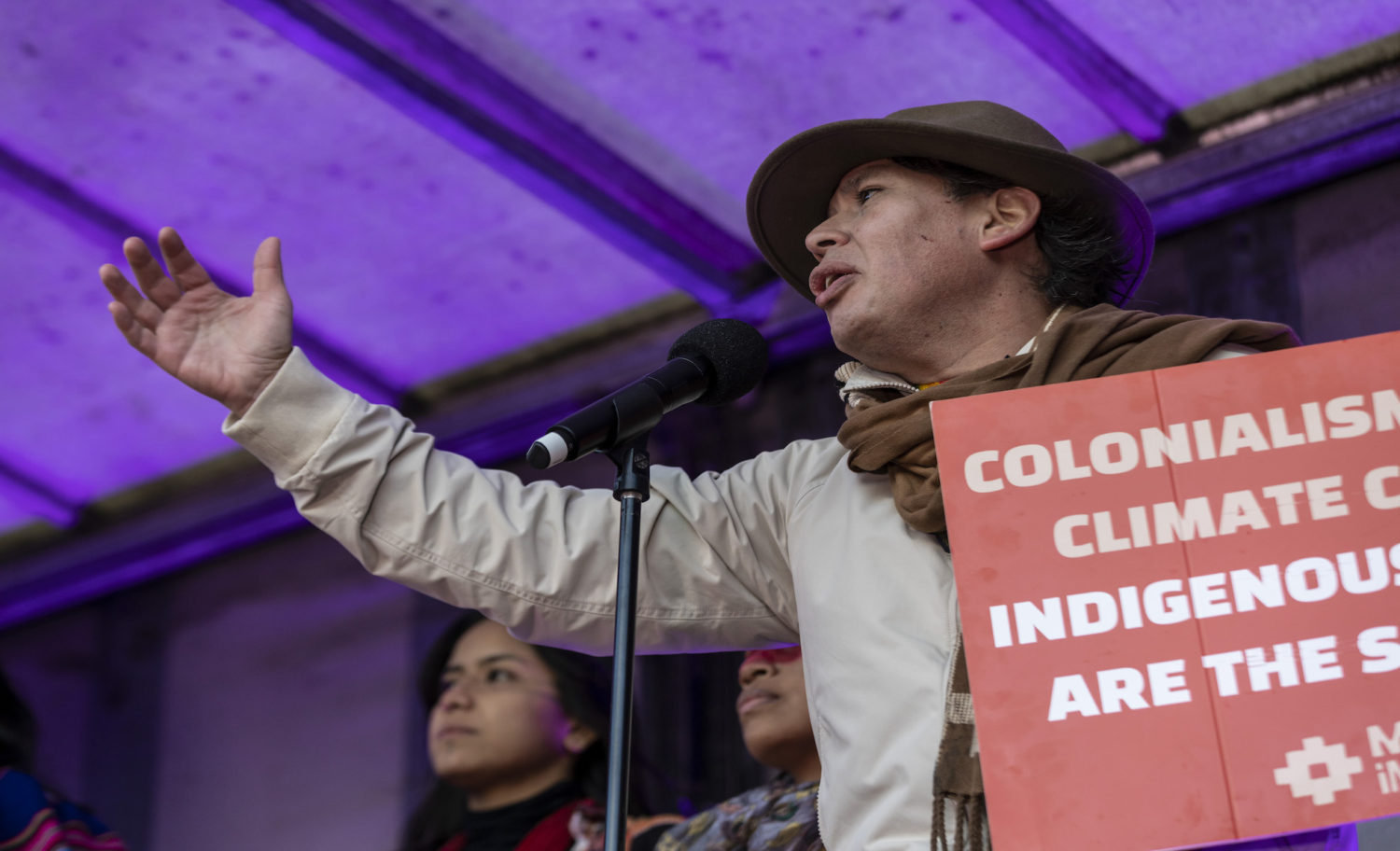Froze out
Global negotiations often exclude low-income countries, but vaccine apartheid made it even harder for their voices to be heard at COP26. Dorothy Guerrero reflects.
All eyes were on the two-week long Conference of Parties under the United Nations Framework Convention on Climate Change (COP26) in November, and the attention it garnered was unprecedented. Reactions have since showed an awareness that the climate crisis is already, and will increasingly, affect everyone globally – it is a global crisis. As such it demands global collaboration.
The summit was hailed as the ‘best last chance’ to stop global warming.
But vaccine apartheid meant the countries hardest hit by climate change (and contributing least to its cause) were left out.
Thousands of people from the Global South and countries vulnerable to climate change were unable to travel to Glasgow because of health measures around Covid-19. This included official government delegates, accredited observers from non-governmental organisations and campaigners who could not to attend because they did not have access to Covid-19 vaccines. Many were also sidelined because of the abnormally-high travel costs and visa restrictions.
Only four Pacific island nations were represented: Fiji, Papua New Guinea, Tuvalu and Palau out of the 38 recognised by the UN, for instance. The US delegation, on the other hand, had around 1,000 people.
High-income countries like the UK have already fully vaccinated most of the population and are now offering boosters. Meanwhile, by this October less than 3 per cent of people in low-income countries had received a single dose.
This apartheid exists because big pharmaceutical companies have a monopoly on patents on vaccines, treatments and health technologies. Patent rights prevent other manufacturers, especially in poorer countries, from making vaccines for their use.
Global negotiations on so crucial a matter as climate change – which affects the economy, security, planetary survival and future generations – should not be held online: Many countries in the Global South do not have stable electricity and internet connection.
That is why developing countries argued against holding COP26 online.
And so instead, people travelled to Glasgow during a pandemic, took health risks and spent huge amounts of money for overpriced tickets and accommodation because they saw the importance of meeting in person to get the right outcomes from the talks. They wanted to come together in person to strategise. They wanted their demands to be heard, as they know all too well that Southern voices get marginalised in global decision-making processes.
Insight showed that the UK public saw COP26 as a chance for countries to meaningfully come together to tackle the crisis. It was an ‘opportunity of a lifetime’ to watch politicians and policymakers from all over the world talk about climate change and try to hold them to account. But the conference drew much attention to the divides in our geopolitical landscape.
There was an unspoken code for richer countries to blame emerging economies like India and China for delays in reaching net zero targets. This ignored the fact that the rich – who are historically responsible for causing climate change – should have more responsibility to cut down emissions.
In the past, the UK, the US, Europe and other rich countries became wealthy by polluting their way to prosperity. Colonialism, and the continued post-colonial extraction of resources through trade and economic partnerships, have been hugely damaging to the environments of certain nations. This context is important. To now place an equal responsibility to act on all countries will only suppress the economic development of rival powers like China and India.
There was also rolling media coverage of climate negotiators presenting their countries’ position on finance, loss and damage of biodiversity or phasing out fossil fuels, which showed a concrete battleground between rich and developing countries on key economic issues.
Despite the dismal outcome of the talks, many felt hope for what happened outside the negotiations. There is now a stronger understanding that we cannot tackle climate change without a radical transformation of the global economy and reparations from those who fuelled climate change to those facing its worst impacts.
Climate finance to back the solutions put forward and help poorer countries address the impacts of climate change, as well as the cancellation of their debts so they can channel resources to climate adaptation, also gained wide public support.
Many are connecting the dots and getting the message clearly that the fight against climate change is a fight for system change. We need to rewrite the rules of our global economic system if we want to save ourselves.
Image credit: Oliver Kornblihtt / Mídia NINJA

